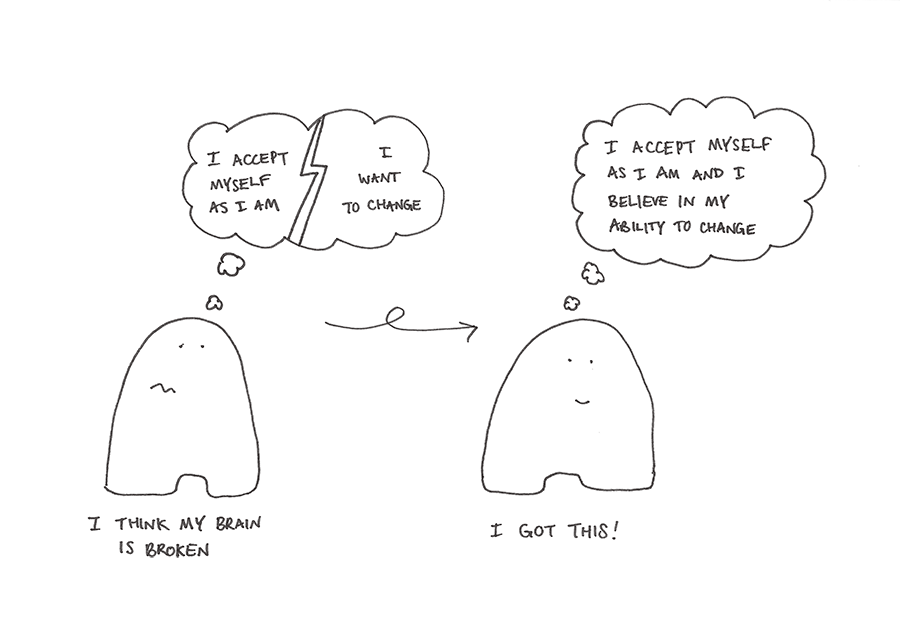
The Change Paradox
The Change Paradox comes from the gap between where I am and where I want to be in life.
Sometimes, when we want to make a change in our life, the desire for change can come from a place of thinking:
- “I need to fix that about myself”
- “I’m doing it wrong”
- “I need to be more x, y or z” (insert your aspirations of choice)
This isn’t necessarily a bad thing, but in the long-term, thinking that you need to change because there is something “wrong” with you isn’t very healthy. It can lead to striving for lots of different changes and never feeling satisfied.
So what’s the alternative?
Thinking that change can come from a place of self-acceptance, accepting exactly who you are right at this moment, can seem like a paradox.
But is it?
Doesn’t accepting myself as I am mean that I don’t need to change anything? If I accept myself as I am, won’t I lose all motivation for change and growth?
Maybe. Maybe not.
Psychologists talk about something called unconditional positive regard
You might also have heard the phrase ‘unconditional love.’ When we talk about unconditional love, we’re often referring to the love parents have for their children. Unconditional positive regard is the basic acceptance and support of a person, regardless of what the person says and does. It’s often used to describe the relationship in counselling: between the counsellor and the person receiving counselling. I think that unconditional love and unconditional positive regard are very similar.
“I love you exactly as you are today, without having to prove anything. You are enough. Anything that you say or do, on top of that, is just a bonus.”
At the same time as having unconditional love, parents know that their child will grow and change… and children indeed do grow and change, even without their parents “trying to change them.”
Perhaps it’s not such a paradox after all… perhaps you can hold both statements in your head at the same time, without breaking your brain.
“I accept myself as I am and love myself unconditionally” and “I believe in my capacity to change and grow, and my ability to surprise myself.”
Or, as RuPaul says, “If you can’t love yourself, how in the hell you gonna love somebody else?” It’s a radical idea, isn’t it: loving yourself first. Treating yourself with sweetness.
Your Turn
Have a play with these two thoughts, holding them in your mind at the same time:
- I accept myself as I am and love myself unconditionally
- I believe in my capacity to change and my ability to surprise myself
See how your brain responds. Play with change from a place of unconditional positive regard: “Whether I succeed in this change or not, I will still love myself.” Does it change the way you feel about the change you want to make?
For more content like this, sign up here to our Field Notes to get the latest content direct to your email inbox.
